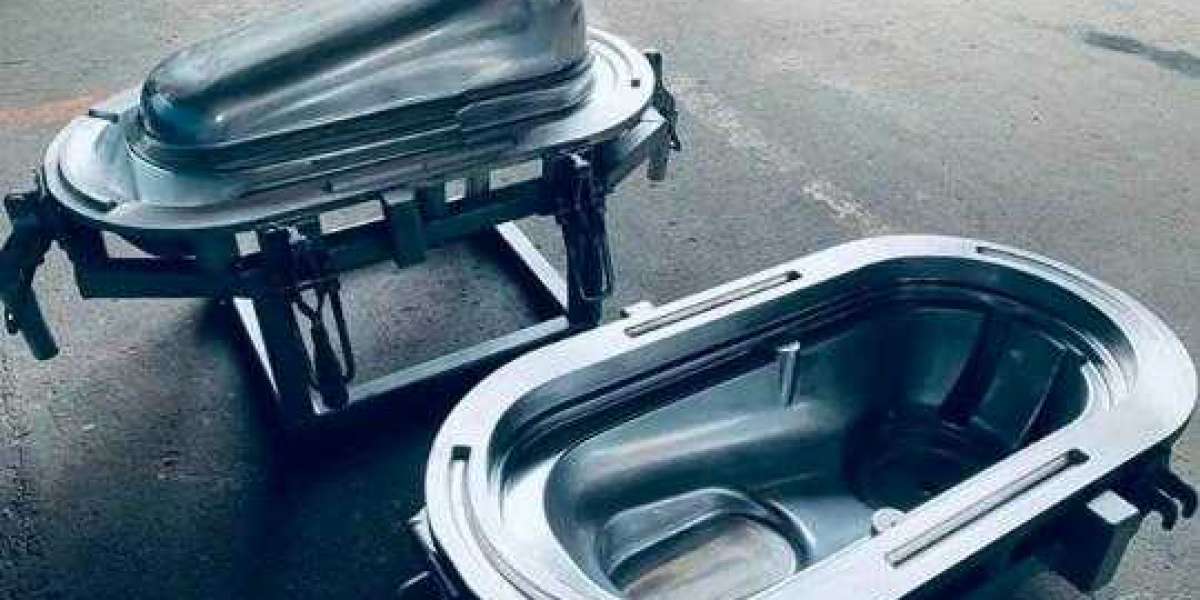Rotational molding, or rotomolding, is a versatile and cost-effective manufacturing process widely used for creating hollow plastic products. The choice of mold material significantly influences the quality, durability, and efficiency of the production process. Among the various mold materials available, aluminum stands out for its unique advantages. This article explores the significance, benefits, and applications of rotational aluminum mold in the rotomolding industry.
What Are Rotational Aluminum Molds?
Rotational aluminum molds are crafted from high-quality aluminum alloys, designed to withstand the rigors of the rotational molding process. These molds are often CNC machined to precise specifications, allowing for intricate designs and detailed features. Aluminum molds are known for their excellent thermal conductivity, light weight, and ability to produce high-quality finishes on molded parts.
Advantages of Rotational Aluminum Molds
- Excellent Thermal Conductivity: Aluminum’s superior thermal conductivity ensures rapid and even heat distribution during the molding process. This leads to shorter cycle times and more efficient production.
- Light Weight: Aluminum molds are significantly lighter than steel molds, making them easier to handle and change. This reduces labor costs and downtime during mold changes.
- Precision and Detail: Aluminum molds can be machined to very tight tolerances, enabling the production of highly detailed and complex shapes. This precision is crucial for products requiring intricate designs and consistent quality.
- Surface Finish Quality: The smooth surface of aluminum molds produces high-quality finishes on molded parts, reducing the need for additional finishing processes.
- Corrosion Resistance: Aluminum’s natural resistance to corrosion ensures longer mold life and reduced maintenance costs, particularly in applications where moisture or chemicals are involved.
- Cost-Effective: While aluminum molds may have a higher initial cost compared to some other materials, their durability, reduced cycle times, and lower maintenance costs contribute to long-term savings.
Applications of Rotational Aluminum Molds
The versatility and efficiency of rotational aluminum molds make them suitable for a wide range of applications across various industries:
- Automotive Industry: Aluminum molds are used to produce complex and lightweight automotive components such as fuel tanks, air ducts, and interior parts. The precision and surface finish achievable with aluminum molds are critical for automotive parts that require high performance and aesthetic standards.
- Consumer Goods: Products like kayaks, canoes, outdoor furniture, and playground equipment benefit from the high-quality finishes and detailed designs possible with aluminum molds. The light weight of aluminum molds also facilitates the production of large consumer goods.
- Medical and Healthcare: The medical industry utilizes aluminum molds to create detailed and precise medical devices, equipment housings, and containers. The high level of detail and consistency provided by aluminum molds is essential for medical applications.
- Industrial Applications: Aluminum molds are used to manufacture robust industrial parts and containers that require precise dimensions and high-quality finishes. These include material handling containers, custom-shaped parts for machinery, and chemical storage tanks.
- Marine Industry: Marine products such as buoys, floats, and other components exposed to harsh marine environments are often produced using aluminum molds. The corrosion resistance and precision of aluminum molds ensure the durability and reliability of marine products.
- Agriculture: Aluminum molds are used to create durable and precise agricultural products such as water tanks, feeding troughs, and equipment parts. The lightweight nature of aluminum molds is advantageous for producing large agricultural items.
Why Choose Rotational Aluminum Molds?
Choosing rotational aluminum molds offers several distinct advantages, especially for manufacturers seeking efficiency, precision, and high-quality finishes. The excellent thermal conductivity, light weight, and corrosion resistance of aluminum make it an ideal choice for a wide range of applications. Additionally, the ability to produce intricate designs with superior surface finishes sets aluminum molds apart from other mold materials.
Conclusion
Rotational aluminum molds play a crucial role in the rotomolding industry, providing unmatched efficiency, precision, and versatility. Their excellent thermal conductivity, light weight, and ability to produce detailed and high-quality finishes make them a preferred choice for many manufacturers. Whether for automotive parts, consumer goods, medical devices, industrial components, or marine products, aluminum molds offer significant advantages that help manufacturers meet stringent quality standards and production demands rotomolding knowledge. As the rotational molding industry continues to evolve, the importance of aluminum molds in delivering innovative and reliable solutions remains paramount.







